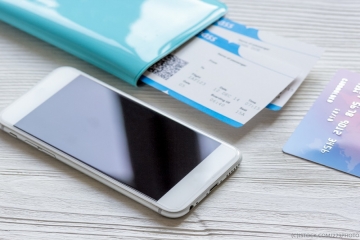SMS: becoming a 'short message saviour'
In an emergency situation, communication is key. A lack of credible information leaves a vacuum that is inevitably filled with speculation, further fuelling the sense of panic. As media consumption habits have evolved, the means by which relevant authorities can communicate urgent announcements to the public have become markedly different. Community announcements delivered by radio and TV may only reach a small proportion of those affected by the crisis, and internet connections may be affected by infrastructural damage.
As such, we are increasingly seeing mobile technology cement its role as the most effective and reliable mode of communication in an emergency.
It is estimated that there are 3.6 billion unique mobile users – approximately half of the global population. The penetration of mobile communications allows for rapid, well-targeted delivery of critical information in an emergency situation. Moreover, mobile signal infrastructure is more robust and reliable as it uses satellites which are less likely to be affected by natural disasters, unlike internet infrastructure.
This means mobile gives authorities the power to forewarn of any impending danger, potentially saving lives. But how?

Bulk messaging – also known as Application to Person (A2P) messaging – is a mass communication service, which at its core, is about being able to send the right message, directly to the right person at exactly the right time, but in bulk to a large customer base wherever they are in the world.
In a crisis or emergency, those responsible for communication can work with an in country MNO or specific bulk SMS providers (or aggregators as they are more commonly known), to benefit from their global connectivity these brokers can offer. This will ensure that any vital information is shared with those affected in their moments of need.
Bulk messaging is about the right person at the right time and has benefits at both a macro and micro level.
In Valparai, a rural tea-growing area in India, the Nature Conservation Foundation (NCF), aimed to reduce the number of deaths caused by elephants after research found that 36 of the 41 deaths from elephant attacks since 1994 could have been prevented if the victim had received a warning. NCF came up with a bulk messaging scheme, which Geetha Thomas owes her life too. She was able to scramble to safety on the roof of her home as a herd of elephants stampeded through her village – all thanks to the alert on her mobile phone.
The Welsh Ambulance Service is an example closer to home of how bulk messaging is adding true value at a micro level. It currently uses a managed bulk text service to contact trained voluntary first responders that can often get to an incident faster than ambulances. For some patients having someone arrive sooner and be able to send an assessment to the paramedics could mean the difference between life and death.
These are a few examples of how bulk messaging has been used to save lives in a crisis or emergency, but they highlight the global value of bulk messaging as an invaluable tool for anyone responsible for the sharing of information in critical situations.
telecoms.com




